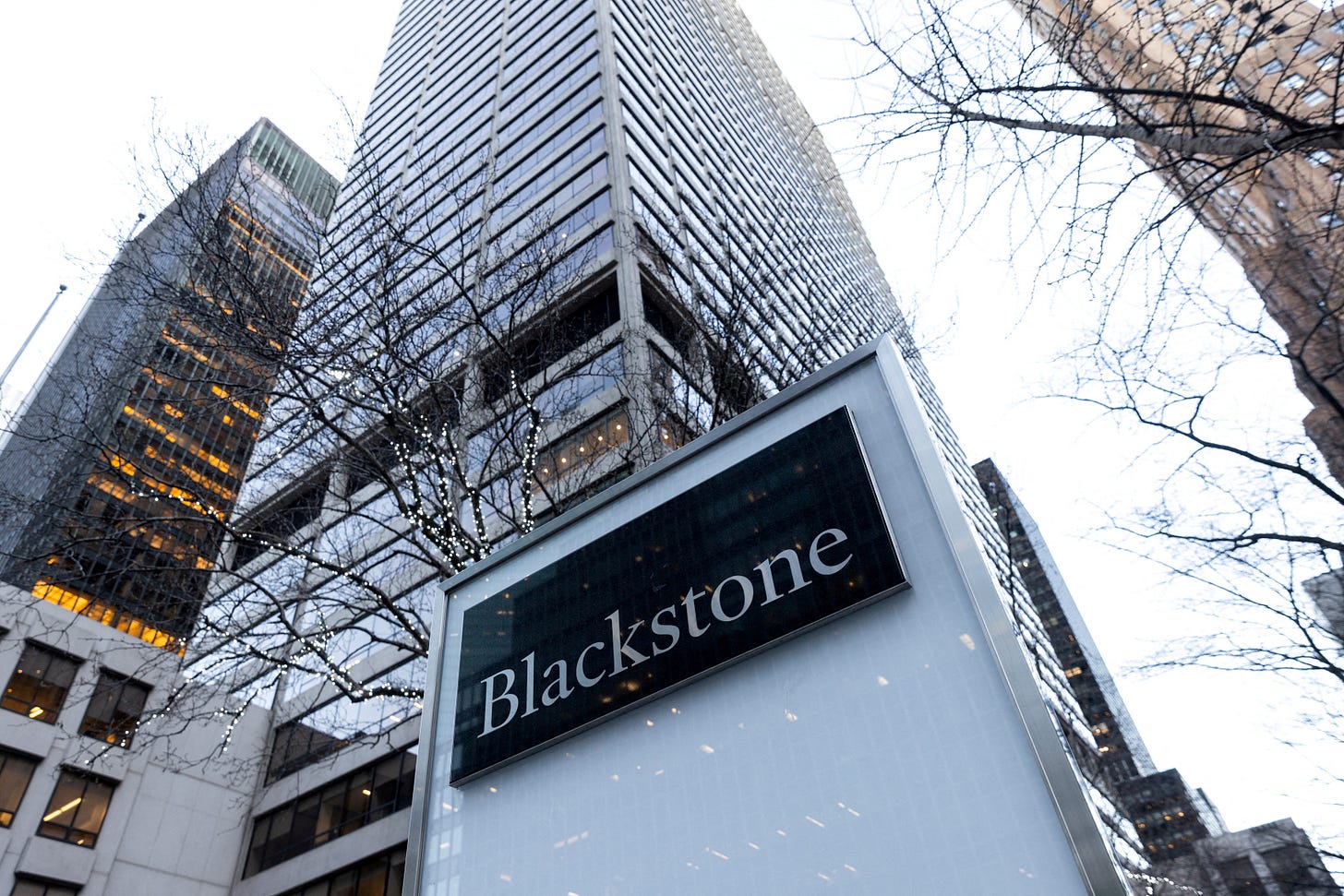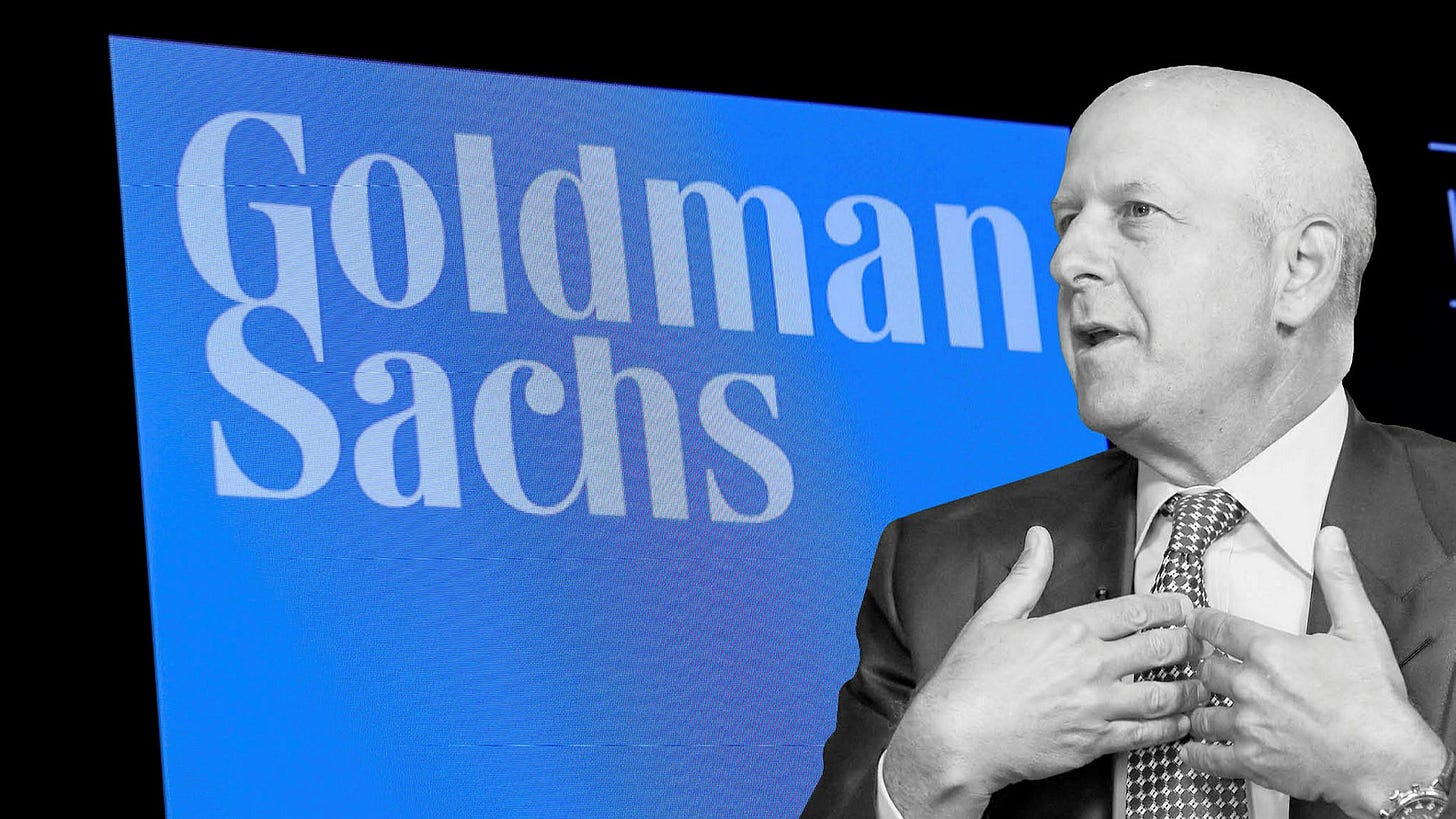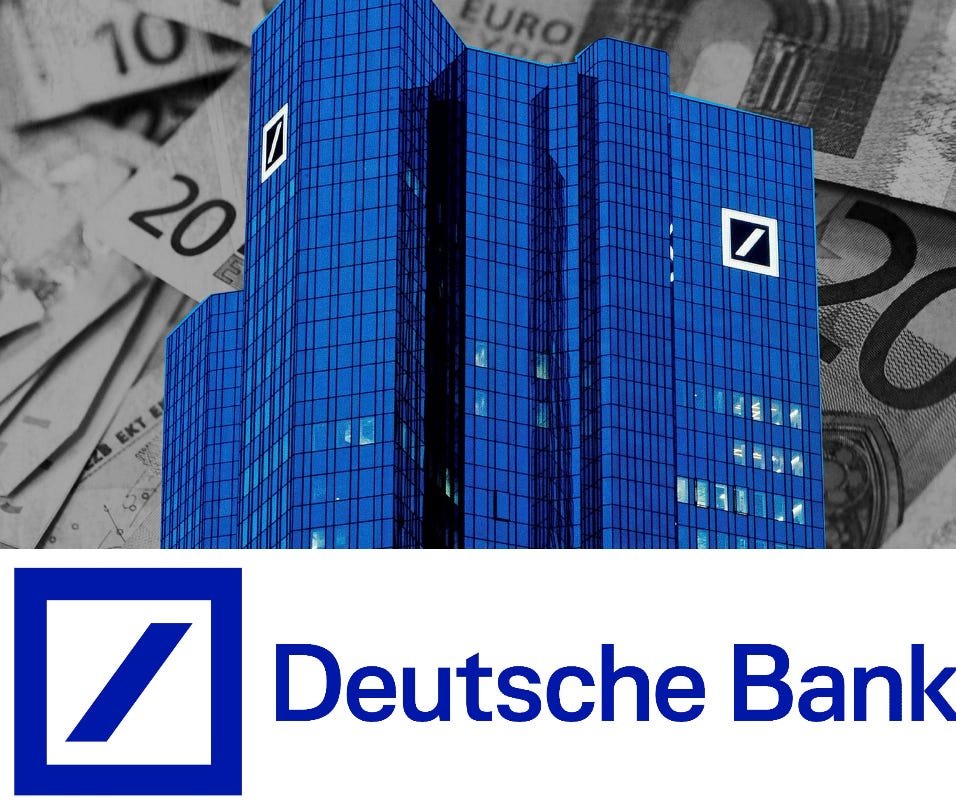Financial Titans Collide: Goldman Sachs and Deutsche Bank in Turmoil as Blackstone Shatters Records with Historic Achievement!
Dear Reader
I hope this message finds you in good health and high spirits. Welcome to this week's edition of our newsletter, focusing on concise and impactful business and finance news.
In an effort to enhance your reading experience, I've kept this newsletter brief, with a particular purpose in mind: gathering your valuable input. At the end of this newsletter, you'll find a poll and a set of short questions. Your feedback is of utmost importance to me as I strive to improve and evolve both my writing style and the way we deliver the weekly news.
From the very first newsletter published, my commitment to providing you with valuable content has remained unwavering. Now, I'm eager to make our small community even better with your active participation.
I hope you find enjoyment in this succinct newsletter and that you'll generously share your thoughts to help shape our future content. Together, we can make this newsletter a valuable resource for all.
Thank you for being a part of our community.
Happy Reading!
Blackstone Becomes First Private Equity Firm to Reach $1 Trillion in Assets Under Management
In a groundbreaking milestone, Blackstone, the prominent private equity firm, has secured its position as an industry trailblazer by surpassing $1 trillion in assets under management (AUM). The company's latest quarterly earnings report unveiled this significant accomplishment, revealing a 6% year-over-year increase in AUM, encompassing investments in private equity, real estate, hedge funds, and credit.
Blackstone's achievement cements its status as the largest alternative asset manager globally, a testament to its remarkable ability to attract substantial capital from institutional investors like pension funds and sovereign wealth funds. The firm's triumphant journey can be partly attributed to the strategic prowess of its CEO, Stephen Schwarzman, adeptly navigating the complexities of private equity and alternative investments.
Despite soaring AUM, Blackstone's quarterly earnings report did report a 39% slump due to a drop in asset sales. However, the firm remains bullish about its future outlook. Schwarzman's optimism shines through as he declares, "we are well-positioned to continue delivering strong returns for our investors."
The ripple effect of Blackstone's feat is likely to reverberate throughout the private equity landscape, inspiring other firms to strive for similar accomplishments. This remarkable milestone underscores the escalating prominence of alternative investments within the global financial system, as institutional investors relentlessly seek higher returns amidst a low-interest-rate environment.
Goldman Sachs Q2 Profits Plummet 62% Amidst Low Merger Activity
In a significant blow to one of the world's largest investment banks, Goldman Sachs reported a sharp 62% drop in Q2 profits on July 19, 2023. The bank's net earnings for the second quarter plunged to $1.07 billion, down from $2.79 billion during the same period last year. The decline was primarily attributed to a sluggish merger and acquisition market, resulting in a decline in the bank's investment banking revenues. Additionally, losses related to the acquisition of fintech company GreenSky added to the financial setback.
The decrease in profits marked a challenging phase for Goldman Sachs, as it endeavours to expand beyond traditional investment banking. Although the bank has heavily invested in consumer banking and wealth management, these ventures have yet to yield substantial profits.
Despite the disappointing numbers, Goldman Sachs maintains a positive outlook for its future prospects. CEO David Solomon expressed satisfaction with the progress made in executing the bank's strategic priorities. As part of its efforts to recover, the bank announced plans to enhance shareholder value by increasing dividends and initiating more share buybacks.
Goldman Sachs is not the sole financial institution grappling with lower profits due to limited merger activities. Industry peers such as JPMorgan Chase and Morgan Stanley have also reported weaker-than-expected earnings in recent quarters. The ongoing impact of the COVID-19 pandemic, which has disrupted conventional business operations, is partly responsible for the declining merger activity. However, some analysts view it as a broader indication of a global economic slowdown.
Deutsche Bank Fined $186 Million by US Federal Reserve for Inaction Against Money Laundering
Deutsche Bank has been hit with a substantial fine of $186 million by the US Federal Reserve for its failure to take action against money laundering at one of its branches in Estonia. The Federal Reserve expressed dissatisfaction with the bank's inadequate anti-money laundering controls and its lack of progress in addressing these concerns, resulting in the imposition of the penalty. The financial institution was found to be engaged in "unsafe and unsound practices" and violations of anti-money laundering regulations.
This recent penalty underscores the crucial significance of robust systems in place within financial institutions to prevent money laundering. Money laundering is a grave offense involving the concealment of illicitly obtained funds, making it challenging for authorities to trace and prosecute criminal activities.
Deutsche Bank has faced prior scrutiny and fines related to money laundering, having previously paid a staggering $630 million in penalties for its involvement in a Russian money laundering scheme back in 2017. The new fine serves as a stark reminder for financial institutions to maintain unwavering vigilance in combating money laundering and ensuring adherence to regulations.
The repercussions of inadequate anti-money laundering controls can be severe, not only leading to financial penalties but also causing damage to reputation and a loss of trust from clients and investors. Banks and other financial institutions must prioritise the implementation of effective anti-money laundering measures to safeguard the integrity of the financial system and prevent illicit activities.
The US Federal Reserve's $186 million fine against Deutsche Bank highlights the urgency of addressing money laundering concerns within the financial industry. Financial institutions must maintain a proactive stance in their efforts to combat money laundering and comply with regulations, safeguarding the integrity of the financial system as a whole.
Poll Questions for your valuable input :)
Have any suggestions? Drop them in the comment section below!
See you next week :)






